Talk
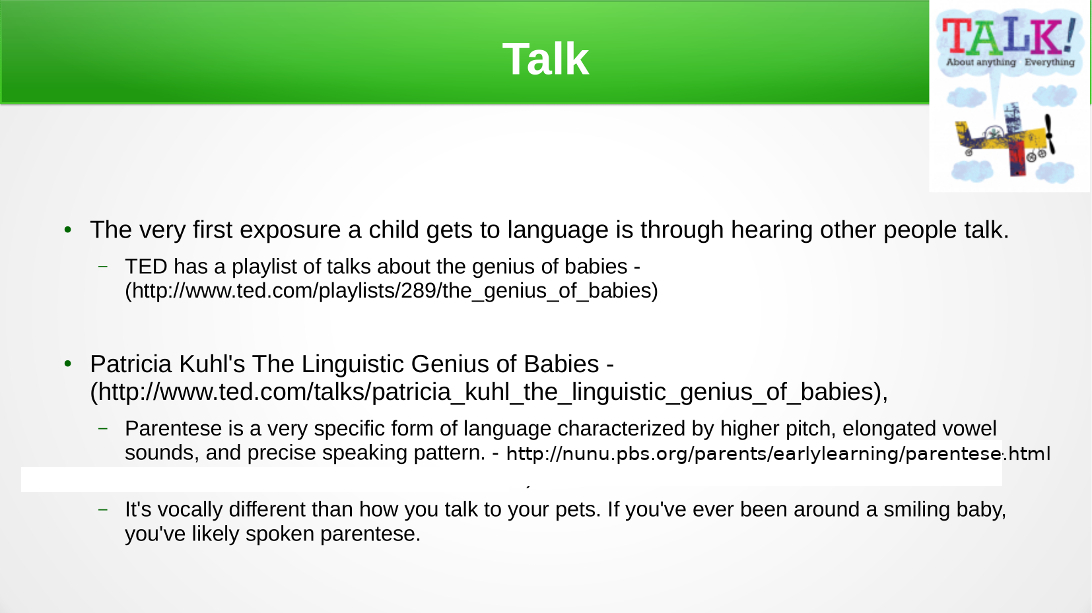
Talk
The very first exposure a child gets to language is through hearing other people talk. TED has a playlist of talks about the genius of babies, but the one I'm going to focus on right now is Patricia Kuhl's "The Linguistic Genius of Babies", because it focuses on an important part of language acquisition - parentese. Parentese is a very specific form of language characterized by higher pitch, elongated vowel sounds, and precise speaking pattern. It's vocally different than how you talk to your pets. If you've ever been around a smiling baby, you've likely spoken parentese.
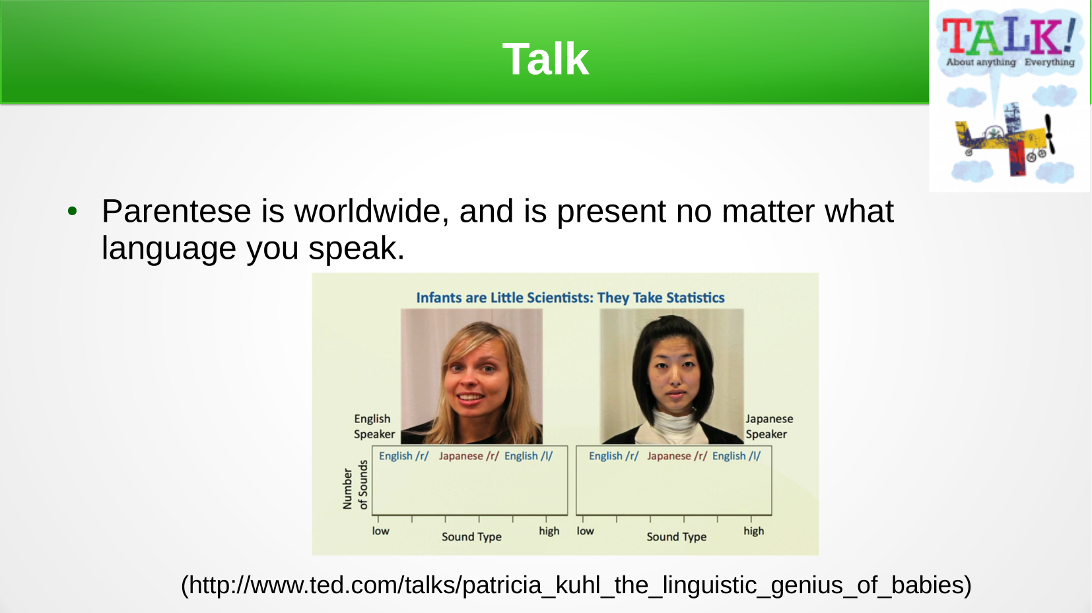
Here's the neat thing, and a short clip from the TED talk will illustrate this: Parentese is worldwide, and is present no matter what language you speak. If you are looking for the universal language of parenthood, there you are.
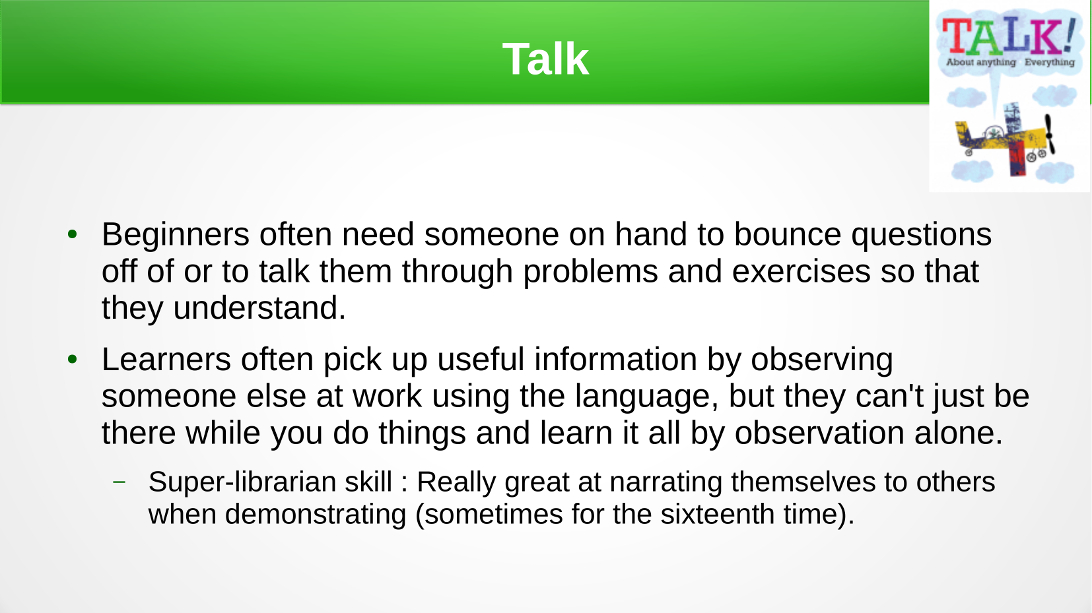
I'm not saying that you have to speak parentese to beginning software learners or novice coders. They might be quite offended with you doing that, actually. What beginners often need, though, is not just to be set in front of a tutorial and told to come back when they're finished, but to have someone on hand to bounce questions off of or to talk them through problems and exercises so that they understand. Learners often pick up useful information by observing someone else at work using the language, but they can't just be there while you do things and learn it all by observation alone. One of the best skills a librarian has that goes mostly unnoticed is that they're really great at narrating themselves to others. When demonstrating (sometimes for the sixteenth time) how to go through a procedure to obtain resources or run searches, librarians narrate what they are doing and why.
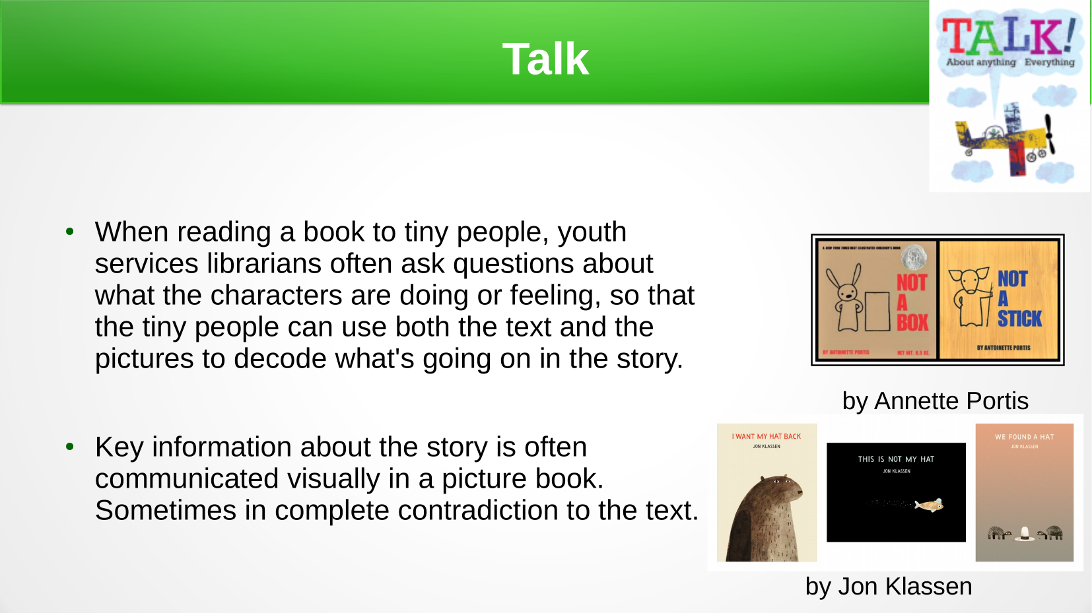
When reading a book to tiny people, youth services librarians often ask questions about what the characters are doing or feeling, so that the tiny people can use both the text and the pictures to decode what's going on in the story. (Recommendations for this concept are Antionette Portis's "Not a Box" and "Not a Stick".) Key information about the story is often communicated visually in a picture book, and sometimes in complete contradiction to the text. (Jon Klassen's "This is not my hat" and "I want my hat back" tell intersecting stories, one in text, one in pictures.) By providing scaffolding through narration, the librarian provides context and reasoning for the actions they're taking. By asking questions at regular intervals, the librarian can check to make sure understanding is happening and adjust to include perspectives they may not have been taking into account before.
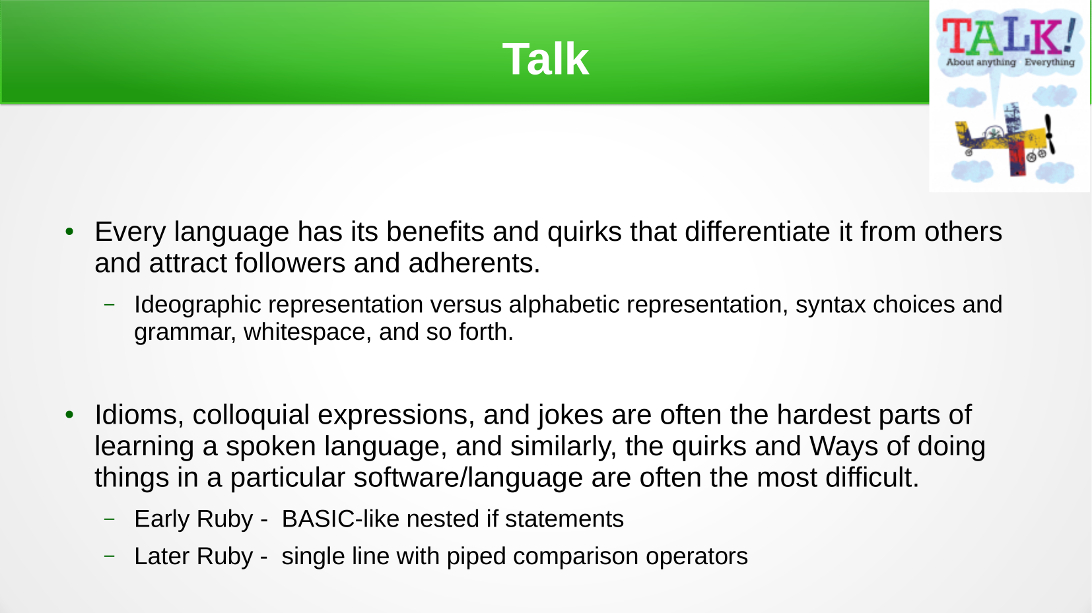
Every language has its benefits and quirks that differentiate it from others and attract followers and adherents. Compiled versus interpreted languages, syntax choices, the use of whitespace as enforcement of hierarchy, speed, flexibility, and so forth all go into the creation, use, and evangelism of a particular language. Idioms, colloquial expressions, and jokes are often the hardest parts of learning a spoken language, and similarly, the quirks and Ways of doing things in a particular software language are often the most difficult. My early Ruby, for example, looked a lot more like BASIC, with layers of nested if statements, each to their own line. Once my instructor pointed out to me the logic operators, and the way that Ruby treats objects and their attributes, more than a few layers of if collapsed into a single, much more readable, line. They both worked, but it was the difference between being able to ask where the bathroom is and being able to share a joke.
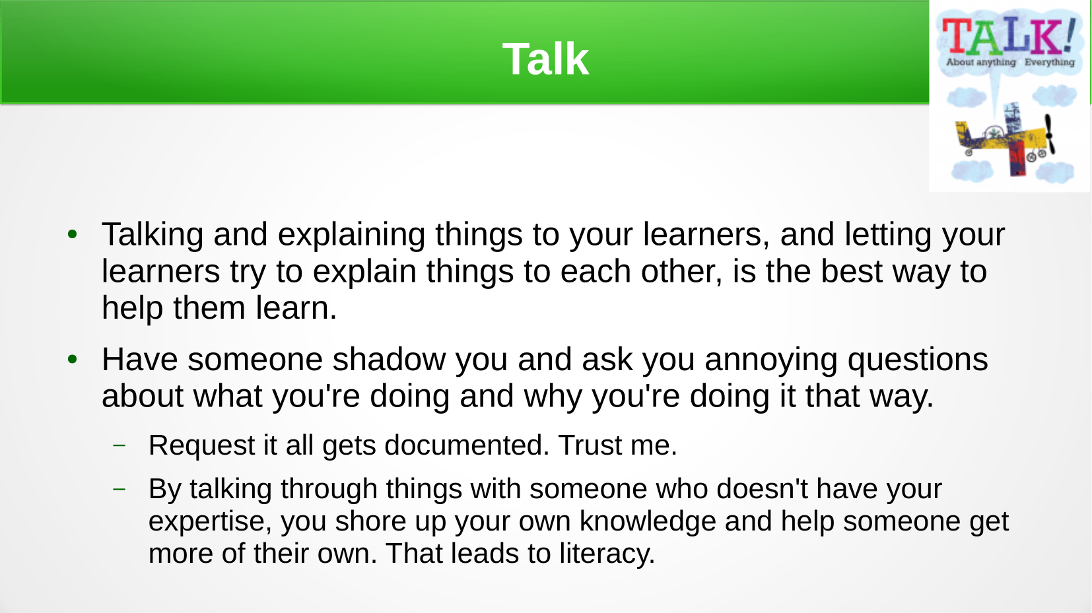
Talking and explaining things to your learners, and letting your learners try to explain things to each other, is the best way to help them learn. So if you get the opportunity to have someone shadow you and ask you annoying questions about what you're doing and why you're doing it that way, take up the opportunity. (And request it all gets documented. Trust me.) By talking through things with someone who doesn't have your expertise, you shore up your own knowledge and help someone get more of their own. That leads to literacy.